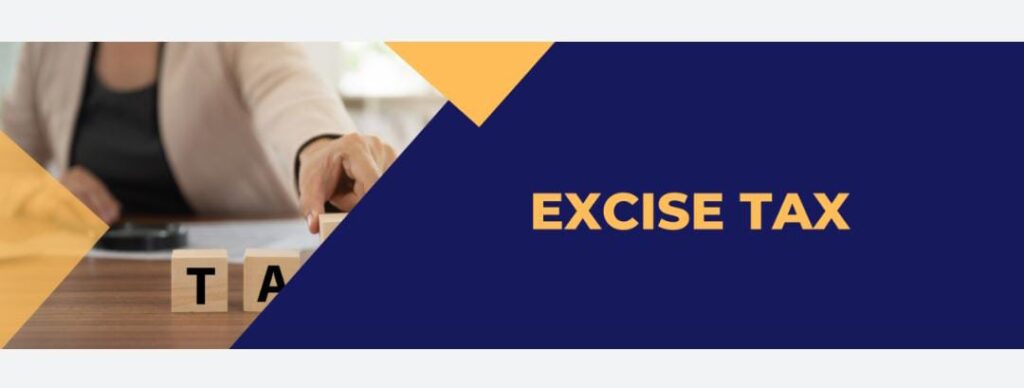
New Central Excise Bill to align with latest GST, customs laws; bring certainty for petroleum, tobacco sectors
By: Admin
June 08, 2024
Categories: Central Excise
4 Min Read

In a move that could ease the burden for petroleum and tobacco players in the country, the finance ministry is all set to revamp the old Central Excise Act 1944 with a new Central Excise Bill 2024, aligning it with recent GST and customs laws.
According to the proposed Bill, the Central Board of Indirect Taxes and Customs is pushing for easier access to refunds, reducing interest on delayed payment of duty, clarification in the definition of related persons, and much more.
The new proposed bill is currently out for stakeholder comments before the government formally introduces it in Parliament and seeks approval.
HOW THE NEW BILL IS DIFFERENT FROM THE OLD
Under the new bill, regarding the provisions for special economic zones, the bill proposes not to exempt excisable goods produced or manufactured in Special Economic Zones and brought to any other place in India from duty.
However, under the old excise Act, an exemption from payment of duty is available on all excisable goods produced or manufactured in Special Economic Zones. According to the industry, the draft bill allows the government to provide exemptions to Special Economic Zones by way of notification in the official gazette. This may subsequently prove to be a relief.
Similarly, on the definition of related persons, the new draft adopts it in letter and spirit from the customs law, whereas in the old law, no such definition was available in the existing framework of the Act. Here, too, the industry feels that this will help provide clarity on the taxability of transactions. However, valuation may still pose a challenge, and they expect the government to ease the pain there.
Regarding interest on delayed payment of duty, the new draft states that the rate of interest on delayed payment of duty cannot exceed 18% per annum, in line with the GST law. In the old law, the rate of interest on delayed payment of duty ranged from 10% to 36%. The industry claims this may prove to be a substantial relief to taxpayers.
On refunds, the proposed Central Excise Bill 2024 stipulates that the limitation to apply for a refund should be one year. However, in the old law, the limitation period to apply for refunds is two years. Sources in the government say the motive is to encourage taxpayers to seek refunds sooner so that the government can process them early, which will, in turn, help taxpayers with their working capital.
Regarding demands and recovery, the new draft Central Excise Bill 2024 aims to set the time limit for this at three years to serve notice to the taxpayer. In the old law, there was no such time limit. This helps both the government and taxpayers by providing certainty within this timeline.
The industry had often alleged that the government could pick any year and issue a notice under the existing law, but with the new proposal, the government will be bound to assess cases of evasion and non-payment within a three-year time limit. The industry feels this would provide clarity regarding the initiation of proceedings against the assesses.
EXPERTS SPEAK
Meanwhile, hailing the proposed new Central Excise Bill, An expert says, “The bill has been drafted keeping in mind the limited applicability of the law in respect of specific goods that are leviable to Central Excise duty such as certain tobacco and petroleum products. Moreover, this bill will help in removing outdated and redundant provisions following the introduction of the Goods and Services Tax (GST).”
“The bill intends to borrow the concept of ‘related persons’ from the customs law. With respect to the limitation, the time limit for claiming a refund by an assessee is proposed to be one year, whereas earlier it used to be two years. The tax authorities may get three years to raise demands,” it added.
Expressing similar sentiments by another expert he says, “The Central Excise Bill 2024 introduces several key changes aimed at modernizing and streamlining India’s excise framework. Notably, the Bill does not automatically exempt excisable goods produced in Special Economic Zones (SEZ) and export-oriented units, emphasising the need for specific government notifications for exemptions.”
“The replacement of CENVAT credit with a new section on Central Excise Duty credit, along with detailed conditions and restrictions for its utilization, reflects a significant shift towards efficiency. Additionally, the transfer of unutilised credit balances as transitional credit is a pragmatic move to ensure continuity.”
“The extension of the time limit for recovery of duties from two years to three years and the reduction of the time limit for claiming refunds from two years to one year indicate regulatory oversight. Overall, these changes signal the government’s intent to create a more predictable and business-friendly excise regime.”
It remains to be seen how soon the government will take the bill to Parliament and get the new provisions up and running for the industry.
For Draft Bill: CLICK HERE
Source from: https://www.cnbctv18.com/india/new-central-excise-bill-to-align-with-latest-gst-customs-laws-bring-certainty-for-petroleum-tobacco-sectors-19425239.htm